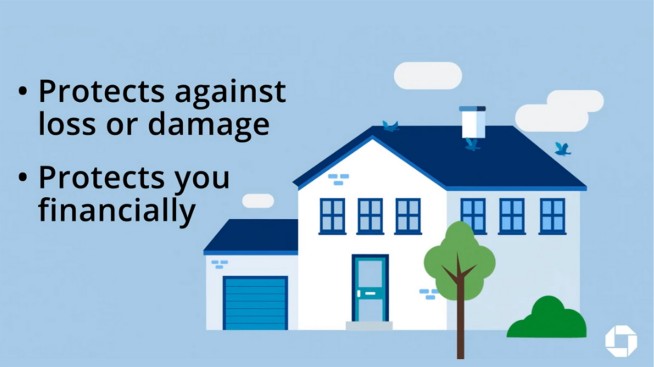A guide to jumbo loan down payments

A jumboec-loans-up-to-85-home-value-fn loan can be the key to the home of your dreams. Jumbo mortgages have helped thousands of Americans purchase homes with higher price tags. But they also carry some special requirements. At the top of this list is a sizable down payment. If you’re considering a jumbo loan, you may wonder how much money you need to put down. You may also want to know how you can begin saving for your down payment.
What is the typical down payment for a jumbo loan?
As a general rule of thumb, you can expect to make a down payment of at least 10% on your jumbo loan. Some lenders may require a minimum down payment of 25%, or even 30%. While a 20% down payment is a good benchmark, it’s always best to talk to your lender about all options.
The good news is you don’t have to feel limited by these figures, you’re free to make an even larger down payment if you wish. By making a bigger down payment, your total loan will be smaller and your monthly mortgage payments will be lower.
Why are jumbo loan down payments a bit larger than average?
The thought of coming up with a six-figure down payment might be a bit intimidating, especially if you’re a first-time homebuyer. To understand why a larger down payment is often required, put yourself in the lender's shoes. Jumbo loans pose a higher risk to lenders than conforming loans. There are three primary factors that contribute to this higher risk:
- Loan amounts are larger. Jumbo loans start at anywhere from $766,501 to $1,149,826 depending on location.
- They are not guaranteed. Jumbo loans are not insured by FHAfha-mentioned-hl000046 or owned by Fannie Mae and Freddie Mac. This puts lenders at increased risk for loss.
- Losses are greater. More money is involved with jumbo loans. If you default on a jumbo loan, the loss may be larger for your lender.
Because markets can change and risks are higher, not all banks or lenders offer jumbo loans. Fortunately, there are still some well-established banks who can afford to offer jumbo mortgages of up to $3 million or more.
Can you find a jumbo loan with a smaller down payment?
It is possible to find a lender who will accept a smaller down payment. But if you find a lender who offers a jumbo loan with only 10% down, be sure to read the fine print on your loan agreement before signing it. In most cases, a smaller down payment may result in the following:
- Higher monthly payments
- A higher interest rate
An experienced Home Lending Advisor can review the pros and cons of a lower down payment with you. They can also show you how a lower down payment can impact your monthly payments. For some buyers, the prospect of larger monthly payments can be motivation to focus on saving for a larger down payment.
How to save for your down payment
Once you know how much money you need to put down, it's time to examine your finances. Ideally, you’ll already have money saved for your down payment. But, if you’re like many borrowers, you may need to make a few financial adjustments. Fortunately, there are many ways to fund a down payment. If you don't have enough money already saved, here are three options to help accumulate your down payment:
1. Use the profit you make from the sale of your existing home
If you are preparing to sell your existing home, you can apply any profit you make to your down payment for your new home. While this strategy won’t work for first-time homebuyers, it can be a great way to generate cash for your down payment.
2. Tap into your savings account
If you’ve been a diligent saver over the years, you may want to consider using your savings account to fund your down payment. Remember to proceed with caution if you decide to use this method, as your lender will most likely require that you have funds remaining after the purchase in case an emergency strikes.
3. Boost your income
It may sound obvious, but the more money yosu make, the faster you can save for your down payment. A great way to start is to talk to your employer about the possibility of a raise. You can also offer to take on special projects or work overtime for extra income. If you strike out with your employer, you can consider a second job if you have the resources to devote to part-time employment.
Other jumbo loan costs
Coming up with the cash for your down payment is a great accomplishment. But don't forget there are a few more costs you may need to cover. Before you move forward with a jumbo loan, make sure you have savings to cover closing costs and other loan-related expenses. Here are some common closing-related costs:
- Appraisal fee: Home appraisals can cost several hundred dollars. Because jumbo loans may require two appraisals, you need to plan to pay twice as much.
- Home inspection fee: A home inspection can cost $200 to $500 (PDF) depending on your property's size, location and scope of inspection.
- Cash reserve requirements: Some lenders require you to have at least 12 months of mortgage payments available.
- Attorney fees: If you choose to have legal representation at the closing, you’ll need to cover attorney fees.
- Title insurance: Most lenders require you to obtain and pay for title insurance to protect both you and your lender.
While this list of costs is a lot to think about, do not feel overwhelmed. Your lender will provide you a Loan Estimate that will list all the costs you will be required to pay. This way you will have a clear understanding of the fees you’re paying.
Is a jumbo loan right for me?
At the end of the day, jumbo loans involve more risks for buyers and lenders. If you’re not sure whether you should get a jumbo loan, the consider talking to one of our experienced Home Lending Advisors. When you meet with one of our lending specialists, you can expect the following:
- A review of available loan options: HLAs can help you compare different available jumbo loan and conventional loan products. They will also cover pros and cons of each.
- Answers to your questions: No two buyers are exactly alike. HLAs will answer your specific questions based on your unique circumstances.
- Solutions to common challenges: Our HLAs are trained to help you find possible solutions to jumbo loan challenges.
- Assistance applying for a jumbo loan: If you decide a jumbo loan is right for you, we’ll guide you as you apply for a jumbo loan.
A jumbo mortgage can be your gateway to the home you’ve been dreaming of. But you will need to make a sizable down payment on top of closing costs and other loan expenses. Start by using a mortgage calculator to make an informed decision about the loan for your individual needs.



